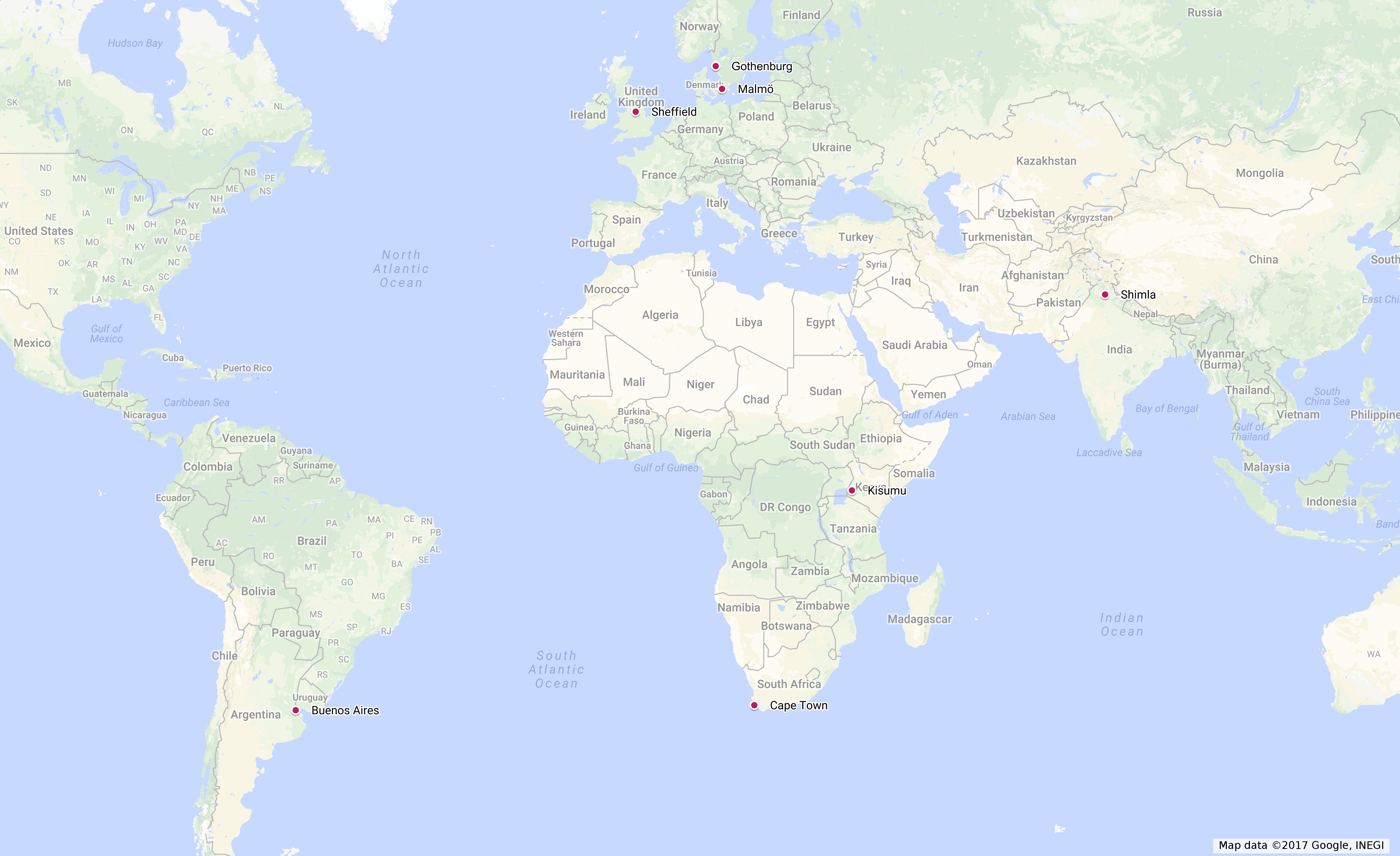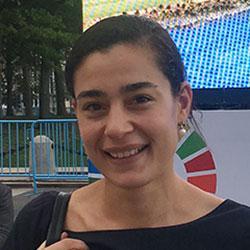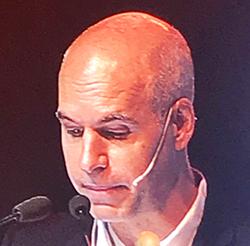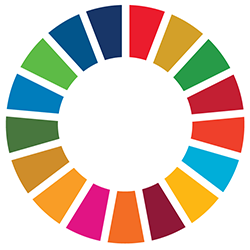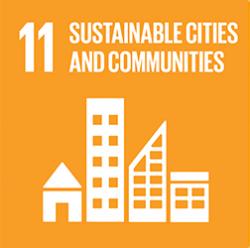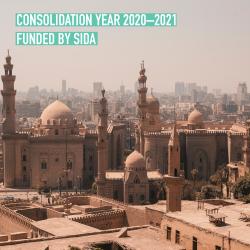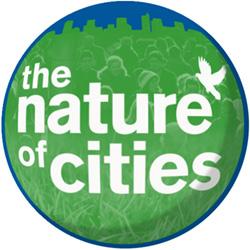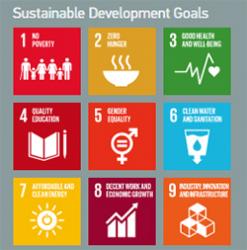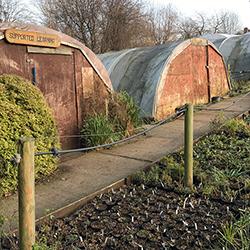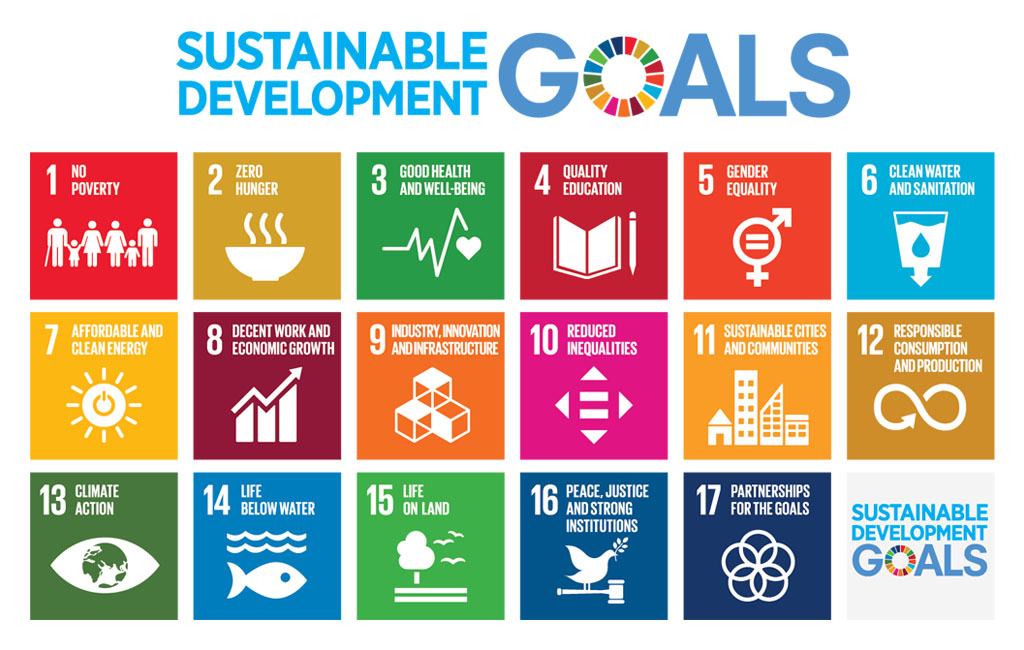
Implementing the New Urban Agenda and The Sustainable Development Goals: Comparative Urban Perspectives
Cities’ interpretation, implementation and engagement with the New Urban Agenda (NUA) and the Sustainable Development Goals (SDGs) form the basis for this project. It is partly based on the outcome of the 2015 pilot project where the then suggested targets and indicators for SDG 11 – the Urban Goal – were tested against the realities in a number of cities in Europe, Africa and Asia.
Cities participating in the comparative project are Cape Town (South Africa), Gothenburg (Sweden), Kisumu (Kenya), Malmö (Sweden), Sheffield (UK), as well as Shimla (India) (through the social enterprise, Nagrika) and Buenos Aires (Argentina) (through the New School’s Observatory on Latin America). An in-depth analysis and research is being carried out in each city, in parallel with a comparative component, with all cities involved in cross-city learning and interaction.
The present project started in 2017 and will continue until at least the end of 2019. The aim is to work actively with cities to support their understanding and implementation of the SDGs and the NUA, and to facilitate cross-city learning and interaction between the six participating cities. The findings, conclusions and results will also be used as feedback to ongoing UN revisions of targets and indicators.
The range of issues encompassed by the New Urban Agenda, SDG11 and the urban elements of other Goals makes this comparative Mistra Urban Futures project comprehensive and provides a holistic perspective on urban sustainability. It also reflects Mistra Urban Futures’ approach of co-producing knowledge with different stakeholders and working between the local and global - in this case, with the global initially informing the local while the co-production approach with the respective municipalities in turn feeds back to inform the global.
SDGs and the New Urban Agenda
The Sustainable Development Goals (SDGs) form part of Agenda 2030 for Sustainable Development, a global agenda for sustainability adopted in 2015 by the UN General Assembly, and which replaces the Millennium Development Goals. There are 17 global SDGs in total, on which all member states are required to report progress over the period 2016-30. Goal number 11 focuses on Sustainable Cities and Communities and aims to make cities and human settlements inclusive, safe, resilient and sustainable. Implementation of Agenda 2030 and its Sustainable Development Goals began officially on 1 January 2016.
The New Urban Agenda (NUA) was adopted at the Habitat III summit in Quito, Ecuador, in October 2016. The NUA is the guiding document for the UN system’s urban engagements over the next 20 years. Official implementation commenced with the formal adoption of the New Urban Agenda by the UN General Assembly on 22 December 2016. Although, for political reasons, there is no formal link between the NUA and the SDGs, there is wide consensus that the SDGs, and especially, the urban goal and the urban elements of the other goals should constitute the de facto monitoring and evaluation framework for the New Urban Agenda.
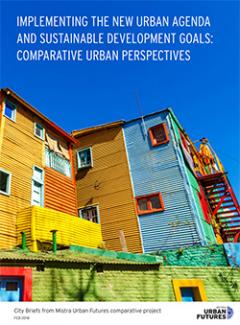
City Briefs
The following ‘City Briefs’ provide an introduction to the case cities and a glimpse of how these cities and their respective countries have started to engage with the two international agendas (SDGs and NUA). We have also selected a brief analysis of the only Tier 1 indicators (as of April 2017) of the urban SDG (SDG 11). This initial analysis shows that even for Tier 1 indicators, methodologies are not straightforward (especially in the case of indicator 11.1.1) and data availability is limited at the city level.
The briefs also show that engagement with the New Urban Agenda in our case cities has been very limited thus far. Most cities, however, have already started to actively engage and adapt the SDGs to the local level.
You can download all of the City Briefs in the "Files"-section at the bottom of this page.
Mistra Urban Futures’ Contribution
Mistra Urban Futures undertook a comparative Pilot Project during the first half of 2015 to test potential targets and indicators for the Urban Sustainable Development Goal (# 11). The pilot tested the data availability, relevance and appropriateness of the draft targets and indicators for the goal. This was carried out in the four cities where our Local Interaction Platforms are based: Gothenburg, Greater Manchester (now Sheffield-Manchester), Cape Town and Kisumu, as well as Bangalore as a contribution to the Urban SDG Campaign, of which the Centre was a member.
A key conclusion of the pilot study was that if the Urban SDG, Goal 11, is to be a useful tool to encourage local and national authorities to make positive investments in urban sustainability transitions, then it is vital that it should prove widely relevant, acceptable and practicable. In this diverse set of cities, the pilot study found that not one draft indicator was regarded as both important or relevant and easy to report on in terms of data availability in all the cities. Similarly, no city found the entire set of draft indicators under SDG 11 straightforward and important or appropriate.
Based on these results, a set of recommendations was produced, which were taken up directly by the UN statistical team in UNDESA (United Nations Department for Economic and Social Affairs) in charge of finalising the targets and indicators. Some of these recommendations are reflected in the final version of Agenda 2030 adopted by the UN General Assembly in September 2015.
Mistra Urban Futures also provided comments on successive drafts of the New Urban Agenda. Another contribution was through the Centre’s role and positioning in the scientific community, an example of which is a comment called ‘Scientists must have a say in the future of cities’, published in a special feature in Nature to mark Habitat III in October 2016.
The team
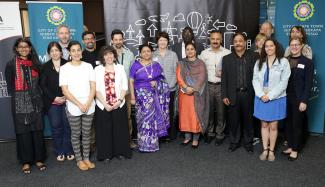
Missing: David Simon and Michael Oloko.
PROJECT PUBLICATIONS
• Open access article from research team (Feb. 2019): Adapting the Sustainable Development Goals and the New Urban Agenda to the city level: Initial reflections from a comparative research project
Abstract: The Sustainable Development Goals and the New Urban Agenda recognise the role of cities in achieving sustainable development. However, these agendas were agreed and signed by national governments and thus implementing them at the local level requires a process of adaptation or localisation. In this paper, we analyse five aspects that practitioners and researchers need to consider when localising them: (1) delimitation of the urban boundary; (2) integrated governance; (3) actors; (4) synergies and trade-offs and (5) indicators. These considerations are interrelated, and while not exhaustive, provide an important initial step for reflection on the challenges and opportunities of working with these global agendas at the local level. The paper draws on the inception phase of an international comparative transdisciplinary research project in seven cities on four continents: Buenos Aires (Argentina), Cape Town (South Africa), Gothenburg (Sweden), Kisumu (Kenya), Malmö (Sweden), Sheffield (UK) and Shimla (India).
• From Buenos Aires team (in Spanish): Nesprias, Julia and Ileana Versace, 2018. Proceso de adaptación de los ODS en Buenos Aires. Coproducción de conocimiento entre instituciones académicas y organismos de gobierno. Cuestión Urbana. 4 (Diciembre): 133-142. http://cec.sociales.uba.ar/?page_id=1121
For more information please contact sandra.valencia@chalmers.se
POLICY BRIEFS
A Policy brief from Sheffield-Manchester team, following UK Cities SDGs event co-organised with UKSSD in June 2019. Read pdf
PROJECT FINAL REPORTS
Under the files section (below) you will find the final project reports for each case study city (Published Nov-Dec 2019).
PROJECT NEWS AND BLOGS
• ACC launches SDG seminar series: The first seminar led by Sylvia Croese focused on localising the SDGs in South Africa (Feb. 2019)
• Consolidating comparative project in Buenos Aires (Dec. 2018)
• SDGs project cross-city learning (Nov. 2018)
• SDG implementation in UK cities (Oct. 2018)
• Lessons from Shimla (July 2018)
OTHER PROJECT CONTRIBUTIONS
• Submission to SDG 17 review: The project team has submitted a contribution to the revision of SDG 17, as part of the e-consultation on the SDGs under review at HLPF 2019 (Feb. 2019. All responses related to SDG 17, including our submission, can be found here. The original e-consultation call including the responses to all SDGs under review at HLPF 2019, can be found here.
• From Sheffield-Manchester team (Sept. 2018): Evidence submission to the House of Commons Environmental Audit Committee follow up inquiry on the SDGs in the UK
USEFUL RESOURCES
Are you interested to know more about the Sustainable Development Goals and the New Urban Agenda?
• Implementing the New Urban Agenda and the Sustainable Development Goals
• Mistra Urban Futures’ SDG Pilot research article and study reports (2015)
• SDSN and Bertelsmann Stiftung Report on SDG Index and Dashboards (July 2016)
• First UN report on SDG implementation in late 2016
• New Urban Agenda
• Sustainable Development UN Transdisciplinary co-production as a tool for advancing SDGs implementation at the city level
For more information about the project/projects please contact sandra.valencia@chalmers.se
Publications
Files
-
Gothenburg Final City Report -SDGs Project- NOV 2019 Valencia (PDF)
-
Cape Town Final City Report -SDGs project- NOV 2019 Croese (PDF)
-
SDG City Briefs (updated July 2018)
-
Policy brief UK Cities Sheffield Manchester SDGs OKT 19
-
World Urban Forum Report February 2020
